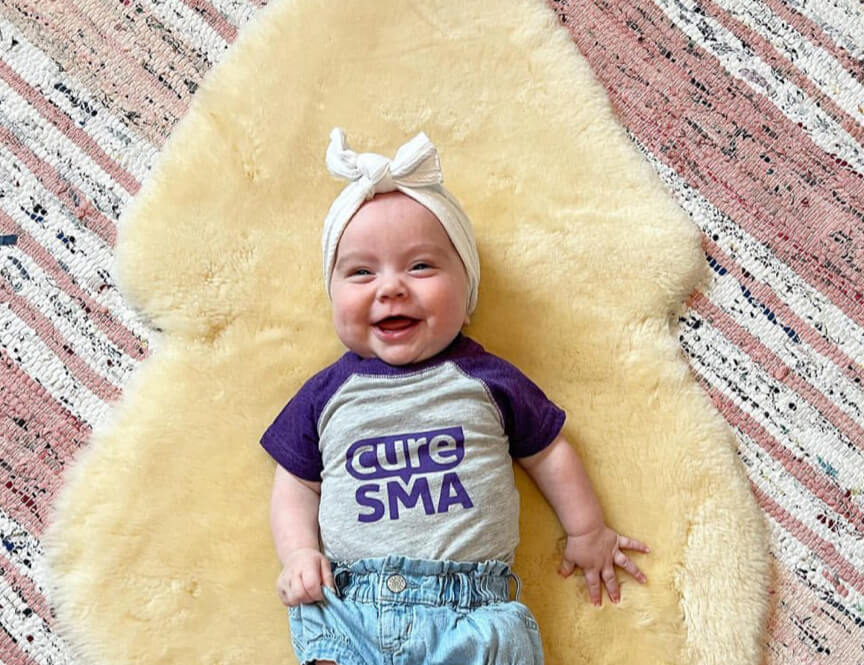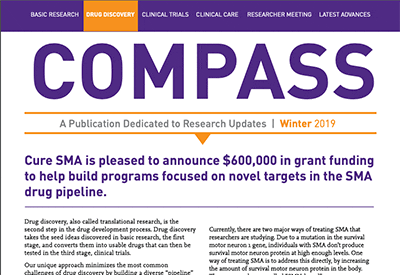Nationwide Children’s Hospital/AveXis recently announced new results from their ongoing Phase 1 trial of systemic gene therapy for SMA. Dr. Jerry R. Mendell, Director of the Center for Gene Therapy at The Research Institute at Nationwide Children’s Hospital (NCH), made the presentation at last week’s World Muscle Congress in the United Kingdom.
Dr. Mendell, lead investigator in the study, reported preliminary observations from the ongoing study including survival data which indicated that none of the patients in this study have reached an “event”, which is defined as death or until a patient requires at least 16 hours of continuous respiratory assistance for at least two weeks in the absence of an acute reversible illness. Additionally, Dr. Mendell described the motor function improvement observed in all patients, as measured by The Children’s Hospital of Philadelphia Infant Test of Neuromuscular Disorders (CHOP-INTEND), a test developed to measure motor skills of patients with SMA Type 1. All patients in this study showed improvement in CHOP-INTEND scores, with modest improvement in the low-dose treatment group and greater improvement in the mid-dose treatment group.
Dr. Mendell stated that AVXS-101 appears to be generally safe and well tolerated in the patients studied to date.
Cure SMA Funds Multiple Gene Therapy Approaches
Beginning in 2010, Cure SMA made a series of grants to Nationwide Children’s Hospital to study gene therapy, also called gene transfer. Spinal muscular atrophy (SMA) is caused by a mutation in the survival motor neuron 1 gene (SMN1). Because of this mutation, the individual does not produce enough survival motor neuron (SMN) protein.
Gene transfer may increase SMN levels by using a virus, called a vector, to deliver the SMN1 gene to affected cells. Dr. Brian Kaspar and Dr. Mendell discovered that Adeno-associated virus serotype 9 (AAV9) had the unique ability to cross the blood brain barrier and the Blood-Cerebrospinal Fluid Barrier (CSF).
Currently, two approaches are being studied: an injection into a vein, known as systemic delivery, which is the process being tested in this current trial, and delivery directly into the cerebrospinal spinal fluid (CSF), a process known as CSF-delivered gene therapy.
In total, Cure SMA has granted $845,000 for gene therapy, including support for both the systemic program and the CSF program.



